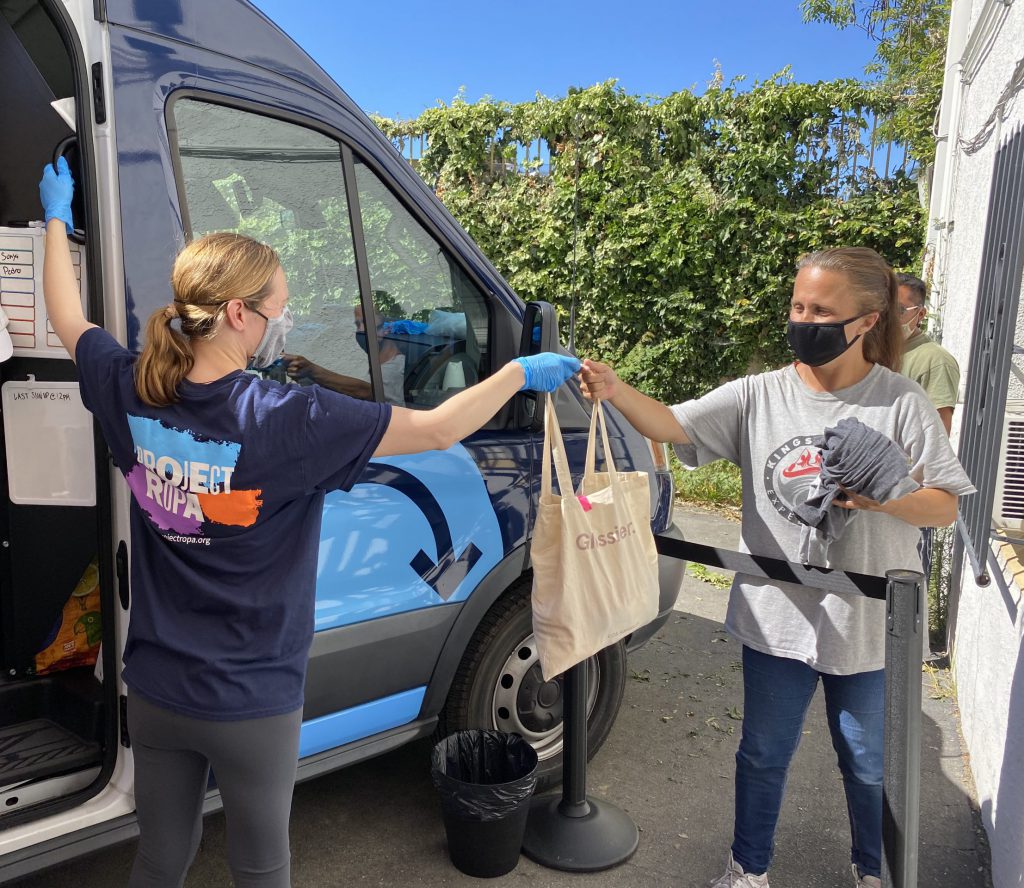Project Ropa was started four years ago to address the challenges that people experiencing homelessness face in obtaining clean clothes. Now, because of the health threats posed by the coronavirus, the need to overcome those challenges has become even greater.
People who are homeless often wind up wearing dirty and wet clothes for long stretches of time, making them vulnerable to the spread of transmissible disease, including Covid-19.
It is more important than ever that they have access to new and gently used donated clothing in a safe and respectful setting. Too often, they have to pick through piles of clothes left on the ground or on tables, and wind up with pants, shirts or dresses that are ill fitting, inappropriate or even no longer clean.
We don’t operate that way.
Project Ropa is the only nonprofit organization of its kind in Los Angeles: our retrofitted van, functioning as a mobile walk-in closet, carries hope to LA’s growing homeless population along with a full selection of high-quality, wrinkle-free men’s and women’s clothes, shoes and accessories.
Everything is neatly displayed on racks and a Project Ropa employee is on hand to help each client select items that are just the right fit and style. We also distribute personal hygiene kits and, through impactful partnerships, make showers and other hygiene services available.
Our mobile service operates weekly, alternating between two locations in the Greater Los Angeles area. We have adopted a full range of safety measures to protect our clients, staff and volunteers from Covid-19.
Our mission is to help the most vulnerable among us to reclaim their dignity, rekindle their optimism and empower their lives. Project Ropa believes everyone is capable of growth, and that the path to personal transformation can start with just a shower and a change of clothes.
When you’re homeless, it doesn’t take long to look that way, and the world and your options in it shrink. People judge you based on your appearance, and what you wear has a huge impact on how you see yourself and how others treat you, Karen J. Pine writes in her book Mind What You Wear: The Psychology of Fashion.
Your clothes can reflect and affect your mood, health and overall confidence. There is even a term for that phenomenon: “enclothed cognition,” a fusion of “the symbolic meaning of the clothes and the physical experience of wearing them,” according to Hajo Adam and Adam D. Galinsky, the researchers who coined the phrase in the Journal of Experimental Social Psychology.
For those experiencing homelessness, the repercussions of enclothed cognition can be life changing. The increased self-esteem that flows from wearing clean and comfortable high-quality clothes can help to open the doors to employment and housing opportunities.
We all deserve to be treated with dignity and respect. We try to do our part by providing clothing in a safe, humane and dignified way.
Learn more about what makes our service different here.


 Donate –
Donate –  Send essentials – Shop our
Send essentials – Shop our  Spread the word – Share this message to help us reach more people
Spread the word – Share this message to help us reach more people